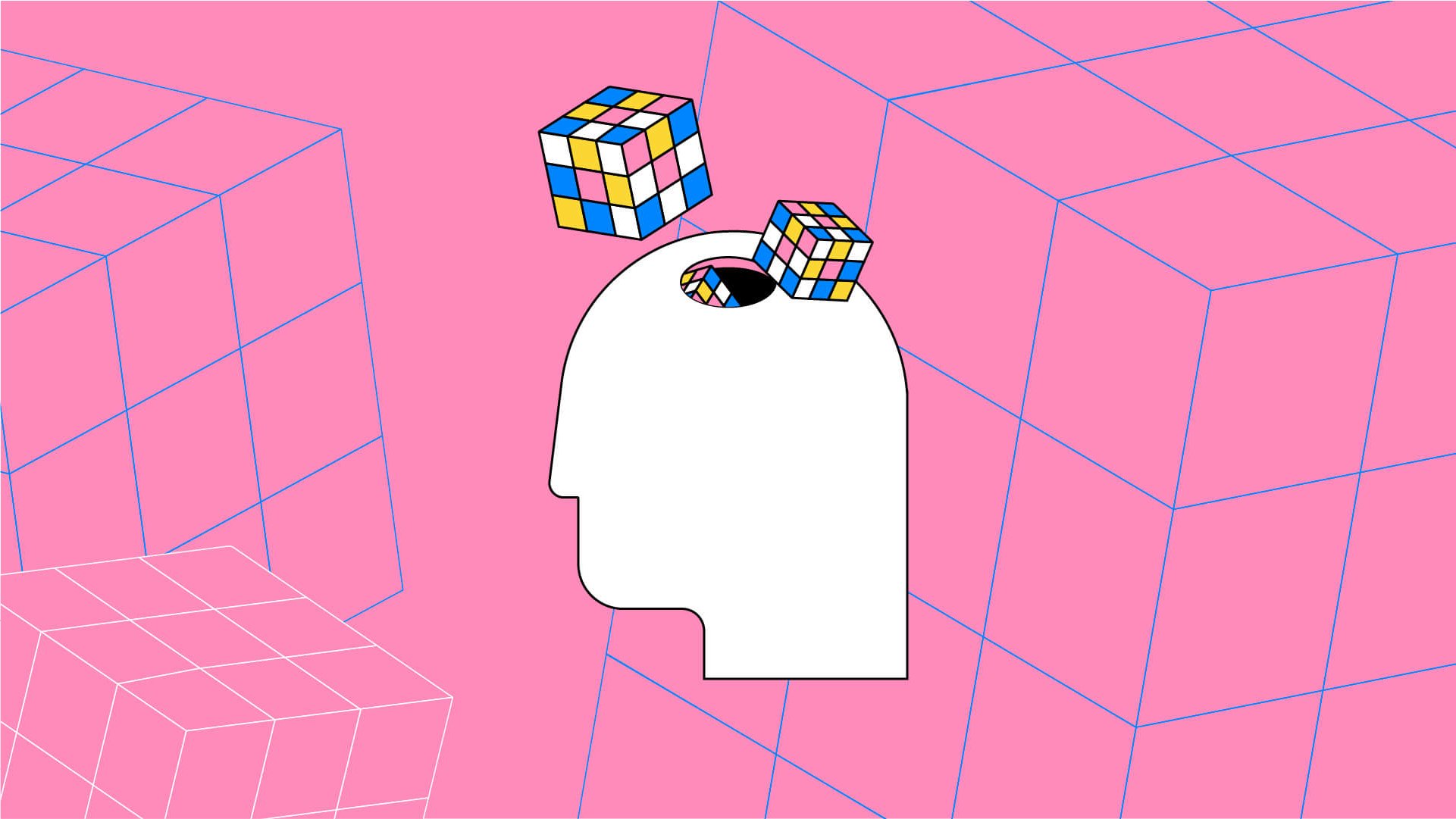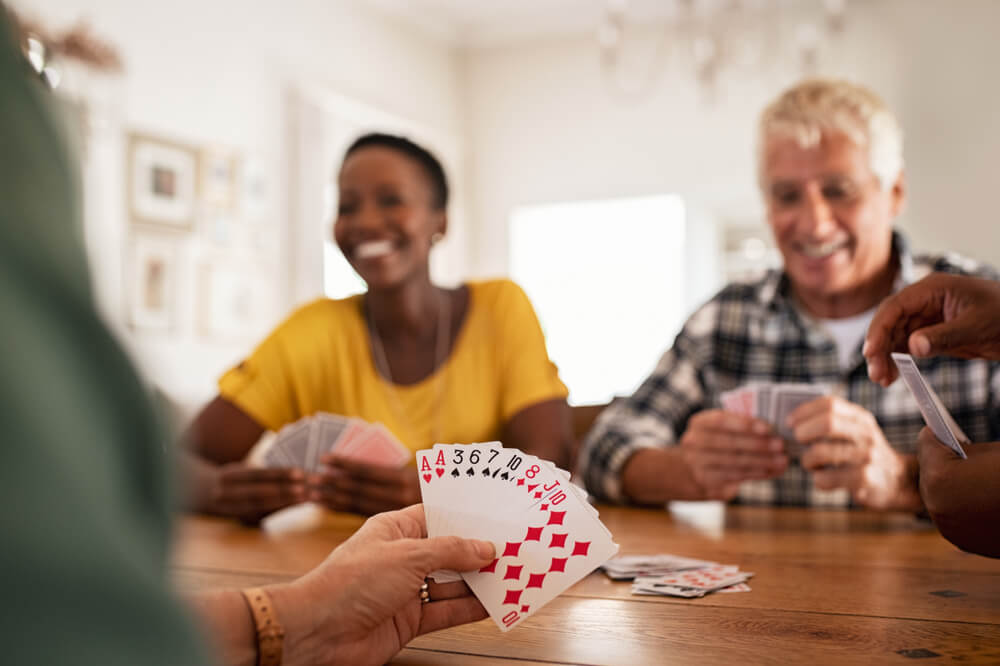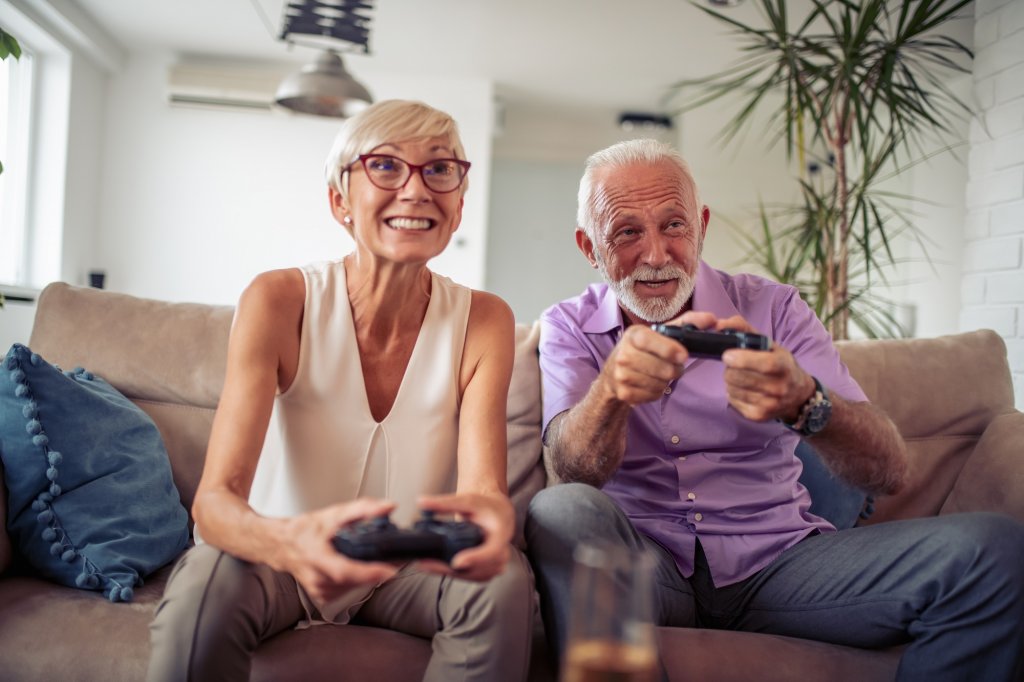
Brain Games: How Cognitive Training Enhances Brain Health


Monopoly, Minecraft, solitaire, bridge: Games are often associated with fun times and good memories. Young or old, we love games for the challenge, the excitement, and the enjoyment that they bring us.
But could playing games also boost your brainpower?
The innovative Aviv Medical Program includes the use of cognitive training (aka “brain games”) to help enhance cognitive functioning. Continue reading to learn why brain training is an important part of our proprietary program.
How the Brain Works — and Why It Needs Cognitive Training
The brain is a remarkable organ, but we don’t often think about everything our brain helps us to do. Something as simple as making a pot of coffee in the morning, when viewed from the brain’s point of view, can get quite complex. The brain has to stir your consciousness, fire the right neurons that direct your muscles to move the right way to get you out of bed, get dressed, make your way to the kitchen, and make some coffee.

There is a reason why we don’t think about this process very often; our brain goes to remarkable lengths to make sure you don’t get overwhelmed with too much information. Much of what we do is part of a routine, and the brain likes it that way because it can conserve energy. As we evolved, it was beneficial for the brain to be “lazy” and automate as much as it could, so that it could focus on our survival.
Nowadays, however, with our basic survival needs generally met, the brain doesn’t have as much to worry about. Much of the learning and growing that the brain experiences tends to happen earlier in life, and as we age, our brain focuses more on using existing skills rather than learning new ones. Although it makes things easier for the brain, it’s also how the brain ages and loses neurons. Conditions such as stroke and challenges like brain fog can also worsen cognitive decline.
Neuroplasticity and Aging: The Brain Can Grow at Any Age

For years, scientists agreed that, unlike many cells in our body that repair or replace themselves when damaged, when brain cells died, they didn’t come back. This turned our neurons into a precious finite resource. We thought that learning was primarily a process for the younger brain. Today, we understand neuroplasticity of the brain — that it brain can still grow, learn, and change at any age.
Consider how a muscle grows bigger and stronger. Remember what happened the last time you did something physical that made you really sore? You might have thought, “I didn’t even know I had muscles there.” Muscles get sore because they’ve been challenged by something they’re not used to doing.
The brain learns and grows in almost exactly the same way.
When the brain does the same routine activities every day, it’s the mental equivalent of sitting on the couch all day.
But when the brain encounters something new or challenging, it can learn and grow. Novelty spurs the brain to form new neurons and neuronal connections, building networks of brain activity much the way muscles build muscle fibers.
Boosting Brainpower Through Cognitive Challenge and Novelty
Any activity that’s new, exciting, or challenging for the brain has the potential to build brainpower and even improve cognitive function.
The brain was designed to solve problems and devise solutions to previously unasked questions. When it encounters things that it’s never experienced, our learning process kicks in.
Gaming is a great way to shake things up for your brain without having to abandon the familiarity of your favorite routines.
If you’re wondering if games are a good way to train the brain, you’ll be happy to hear that data shows cognitive training can improve quality of life and ward off cognitive decline. Dietary changes and exercise can also help.
Clinical Evidence: What the ACTIVE Study Says About Brain Training
The Advanced Cognitive Training for Independent and Vital Elderly (ACTIVE) trial was designed on the premise that cognitive function can be trained and may improve health outcomes and quality of life for older adults. The study aimed to show the actual practical impact that cognitive training can have on daily life.
The study targeted three areas of cognitive function that start to decline on average in the mid-60s: reasoning, memory, and processing speed. A group of 2,802 adults aged 65 and older participated in the study. The treatment group received a total of 10 training sessions lasting 60-75 minutes each, over a period of five weeks. A control group received no training. A select group from the treatment group was also given “booster” training sessions 11 and 35 months later.
To determine the effects of the training, the participants were rated as they performed activities of daily living. These included getting dressed, preparing meals, shopping, managing finances, and so on. Subjects were rated on how independently the tasks were completed and the perceived level of difficulty. Additional computer-based tests analyzed participants’ reaction time as they responded to changing traffic signs.
The study also looked at secondary measures, including improvements in health-related quality of life, the impact on mobility and incidence of falls, and whether driving was affected.
ACTIVE Trial Results: Real-Life Benefits of Brain Training for Older Adults
The study found that all areas of cognitive function measured — speed, memory, and reasoning — showed immediate improvement as a result of the cognitive training.
Although some of the improvements dissipated by the end of the follow-up period, the training group still showed a significant improvement over the control subjects five years later. The booster groups that received additional training saw even better improvements.
The treatment group also reported significantly less difficulty in performing daily tasks. The results for self-reported quality of life were also better for the treatment group than for the control group.
Overall, participants in the treatment group had less difficulty performing functions of everyday living and reported better quality of life. Training also positively impacted driving abilities, including fewer 50% fewer at-fault accidents reported.
What Games Improve Cognitive Function in Older Adults?

The ACTIVE study shows the clear positive impact of cognitive training, and playing games is one of the best ways to train the brain.
Of course, not all games are created equally. While all engage the brain on some level, there are some specific brain functions one should ideally target.
What should you look for in a game?
Cognitive training at Aviv Clinics currently utilizes a platform called BrainHQ. One of the games, Double Decision, is a speed training game based on the intervention used in the ACTIVE study.
In Double Decision, the object is to spot an object that flashes in the middle of the screen while simultaneously tracking a second object that flashes in your peripheral vision. The player must then remember both the object in the center and the location of the other item. The game is designed to scale in difficulty as you improve by adding distractions to further challenge the brain.
Enjoyment Matters: Choosing Cognitive Activities You’ll Stick With
Although BrainHQ uses games that are optimized for the cognitive skills most in need of training, it’s important not to get too hung up on finding the “best” games for your brain. The truth is that the best games are the ones that you’ll play. After all, even the best game won’t do your brain much good if you never play it.
Focus on finding ways to challenge your brain that you enjoy and can ideally complete regularly. And feel free to change it up, too — the brain thrives on novelty! Whether it’s a crossword or sudoku puzzle on your own, a game of chess with a friend, or your grandkid’s latest VR video game, there are endless ways to have some fun while training your brain.
The Aviv Medical Program: Enhancing Brain Performance Through Cognitive Training
Aviv Clinics combines cognitive training with hyperbaric oxygen therapy and other personalized interventions to promote neuroplasticity and cognitive resilience. As the only U.S. location offering the unique, evidence-based Aviv Medical Program, Aviv Clinics in central Florida empowers you to optimize your brain health with lasting results.
Based on nearly two decades of research and development, the intensive treatment program is customized to each client’s needs. Using in-depth assessments, our physicians prescribe a personalized plan for each client.
For a free consultation with one of our board-certified physicians, contact us.
Last Update: July 1, 2025
Aviv Medical Program provides you with a unique opportunity to invest in your health while you age.



